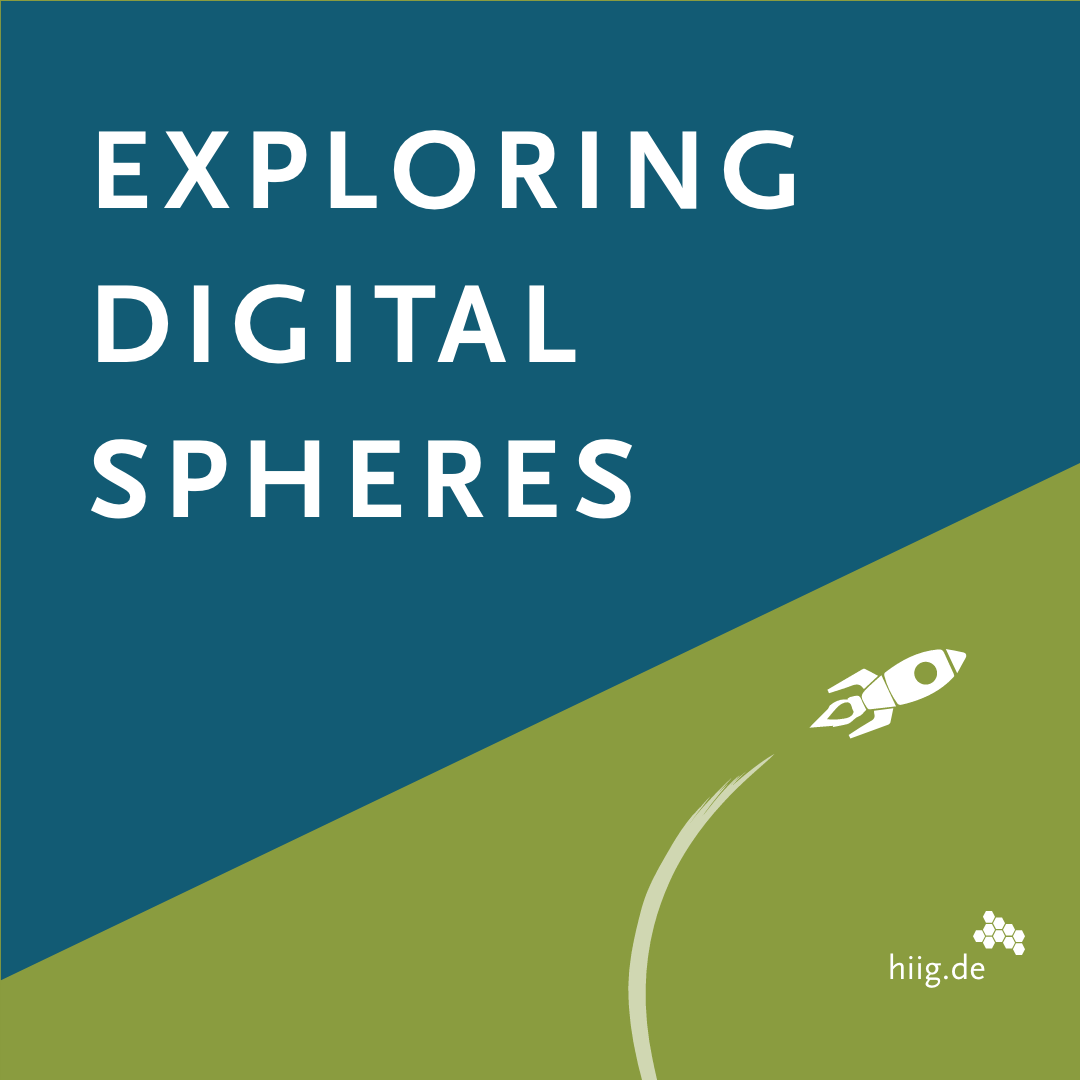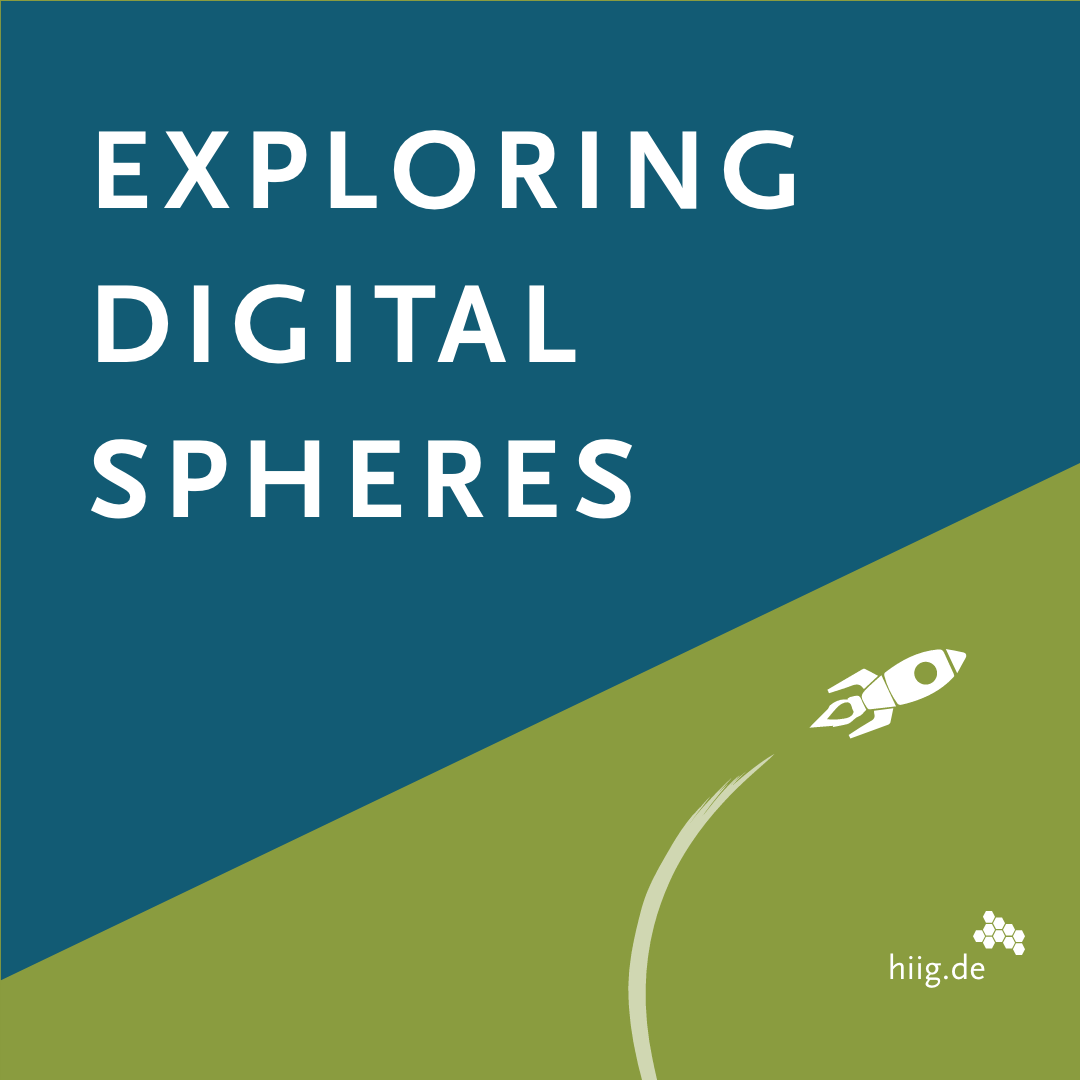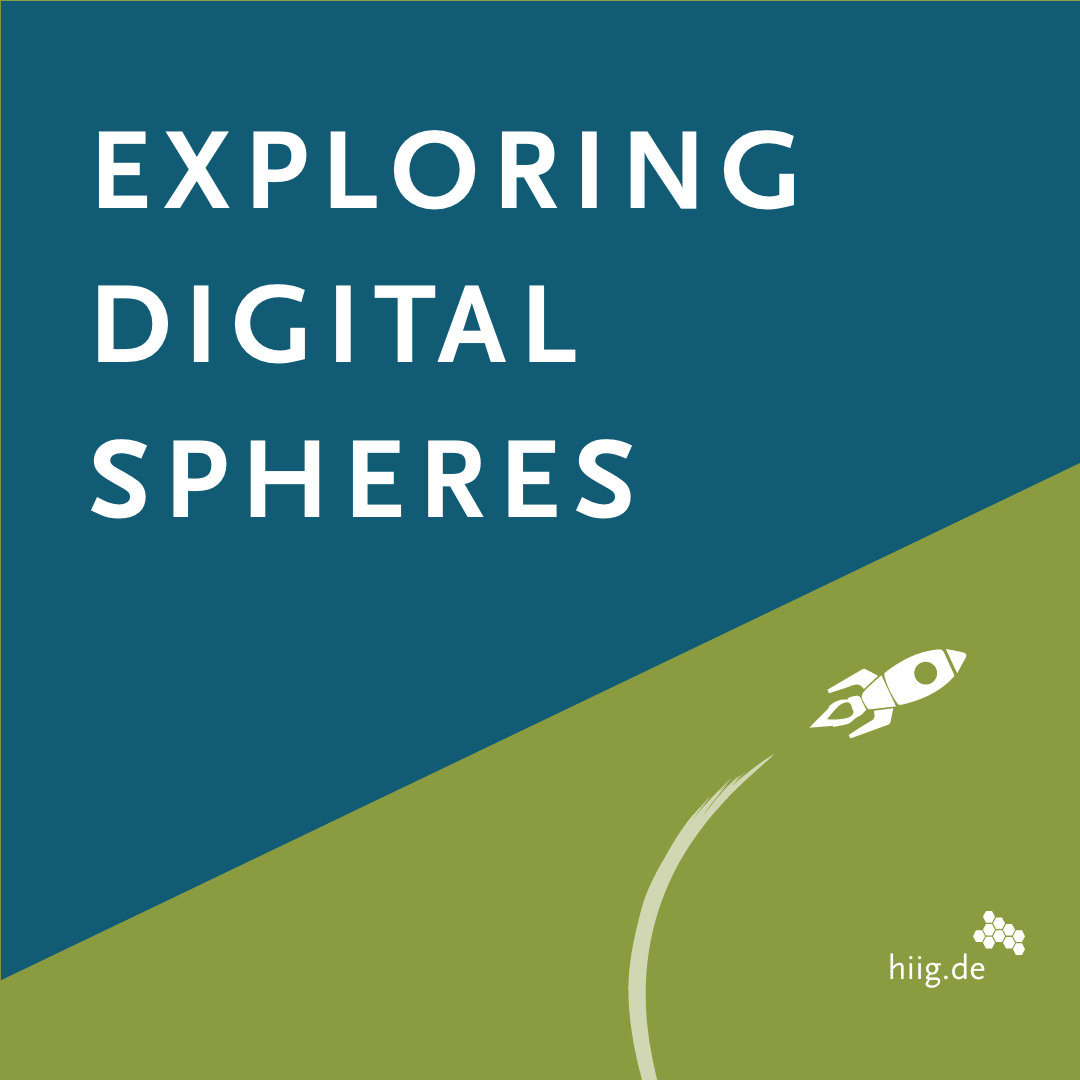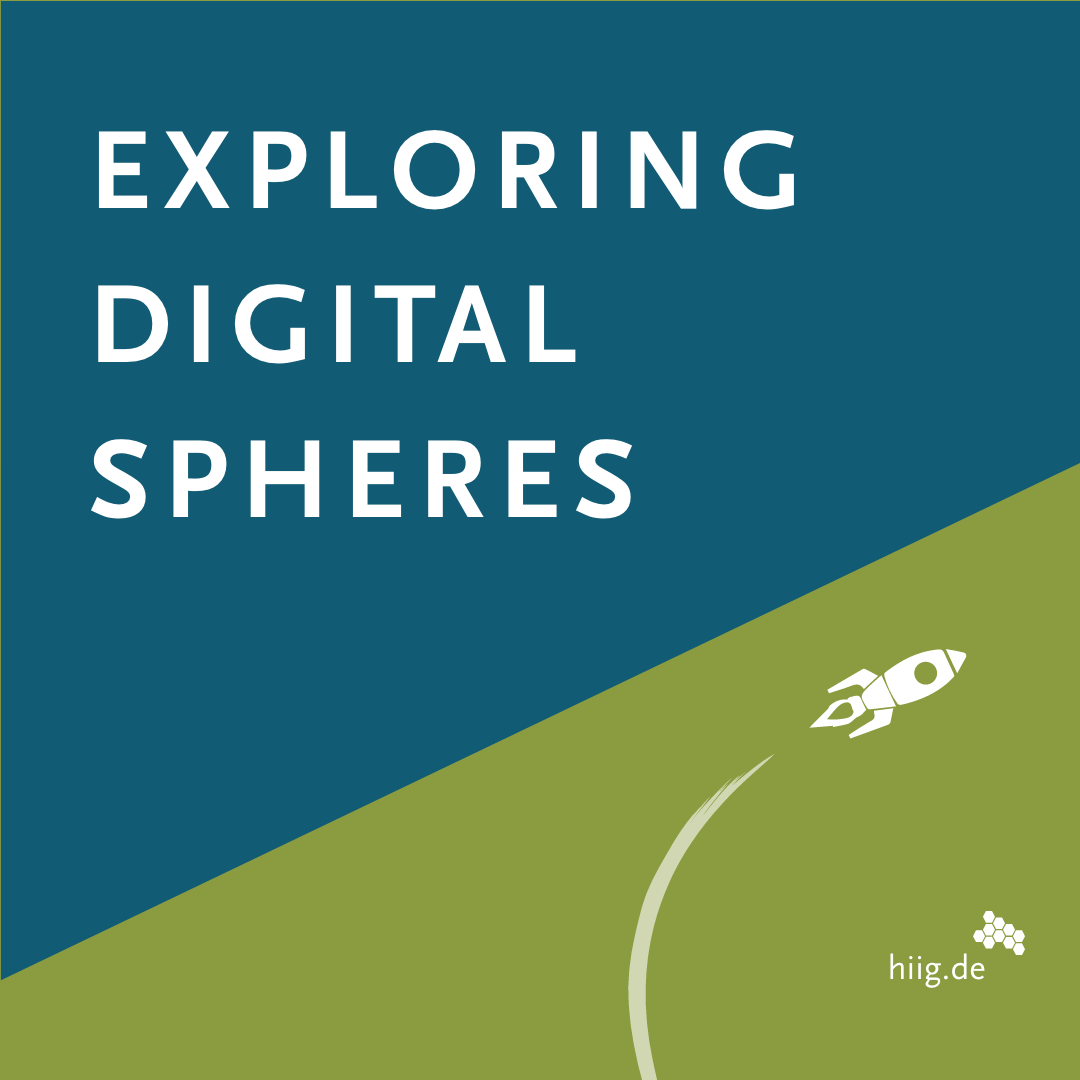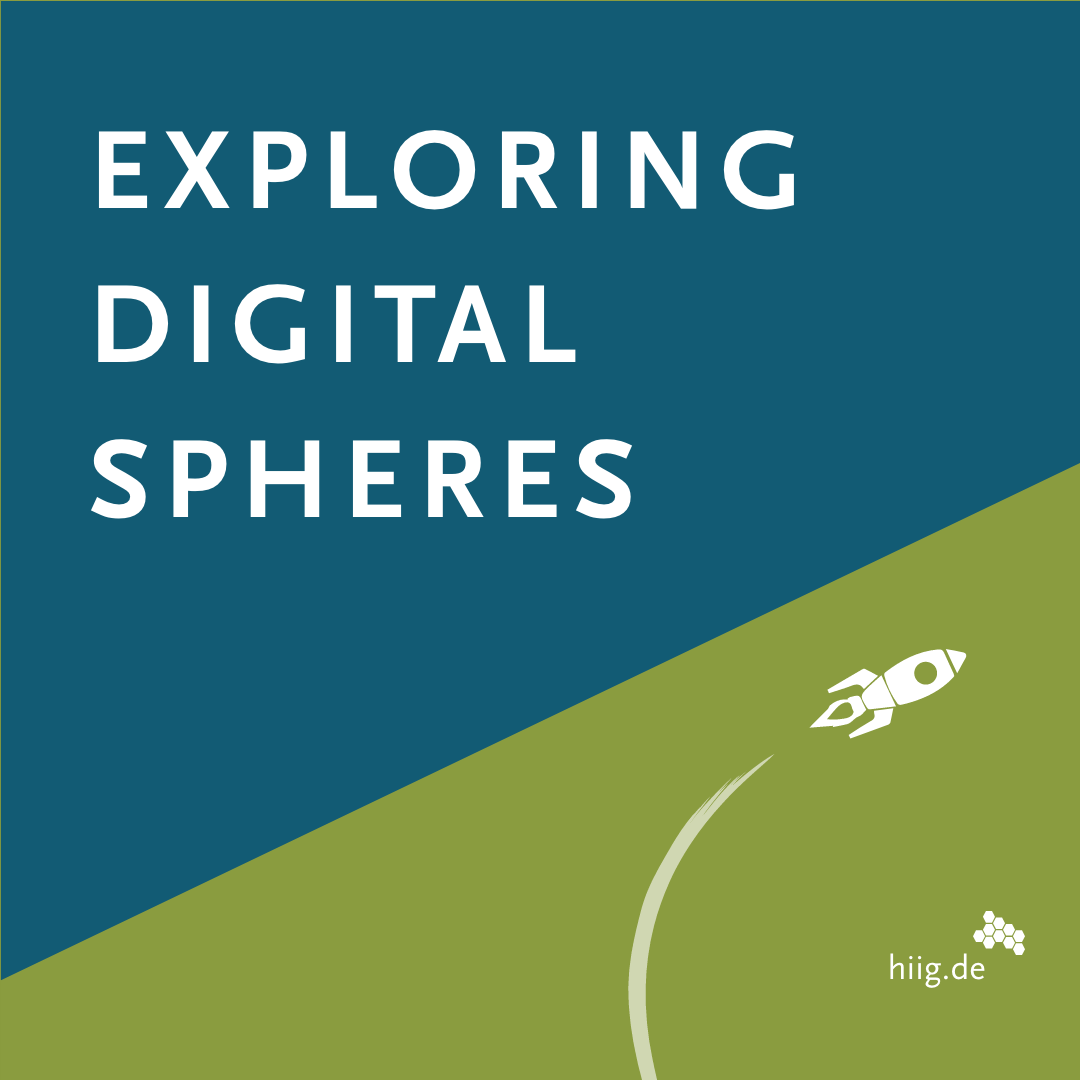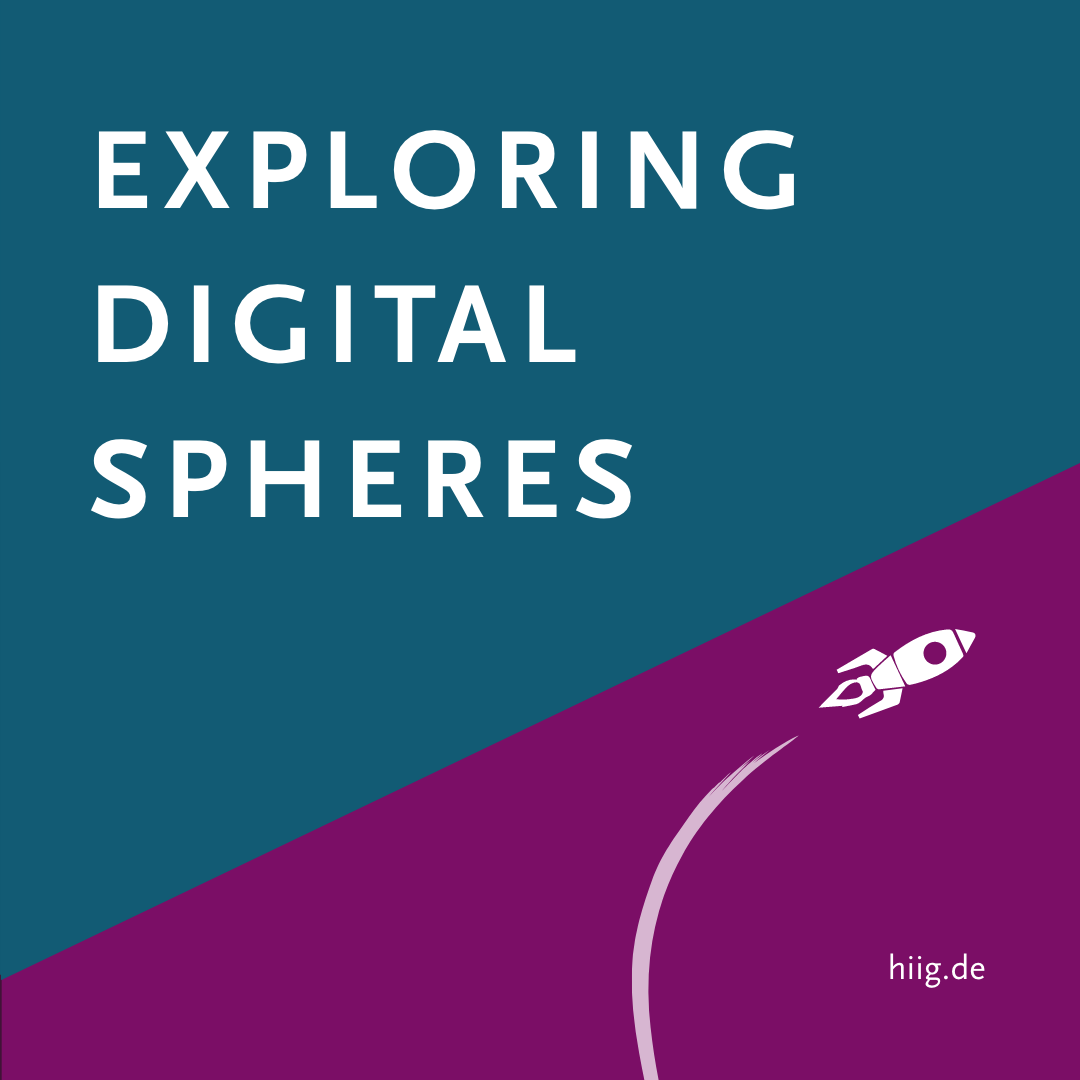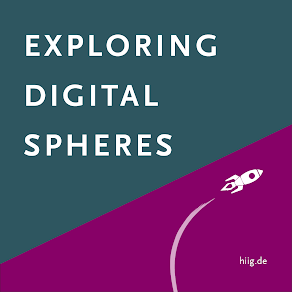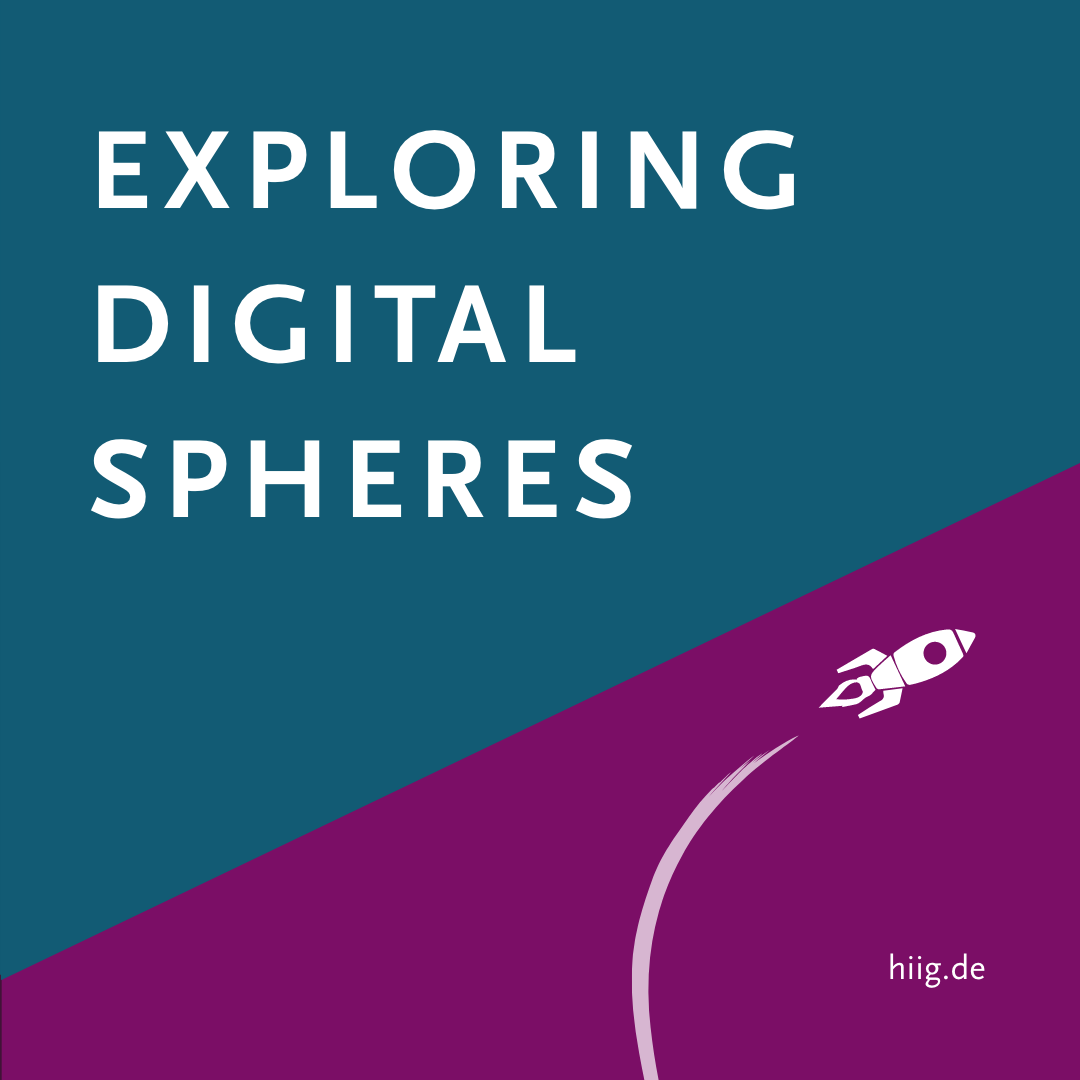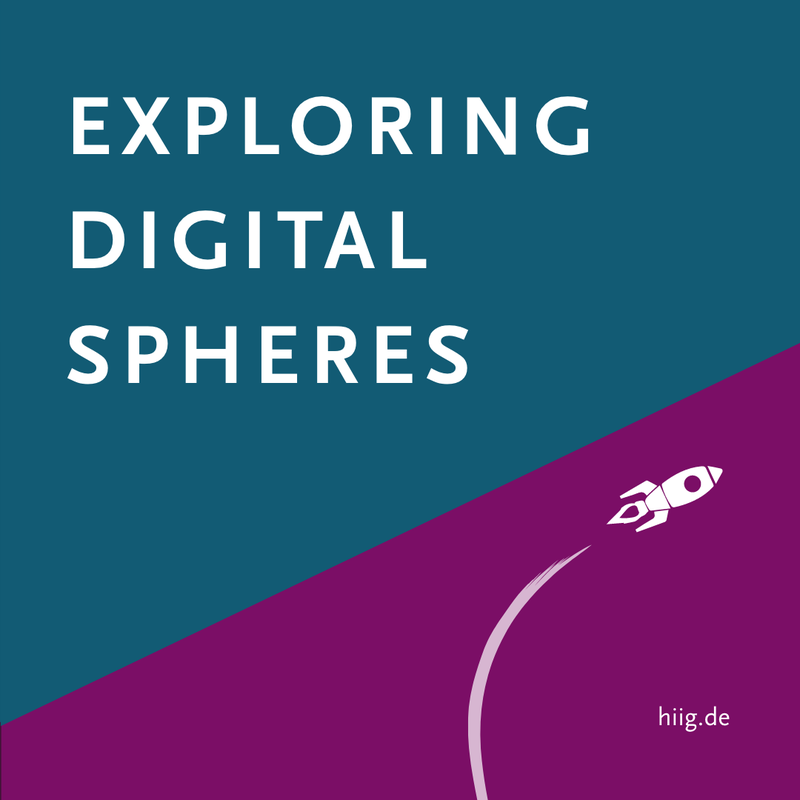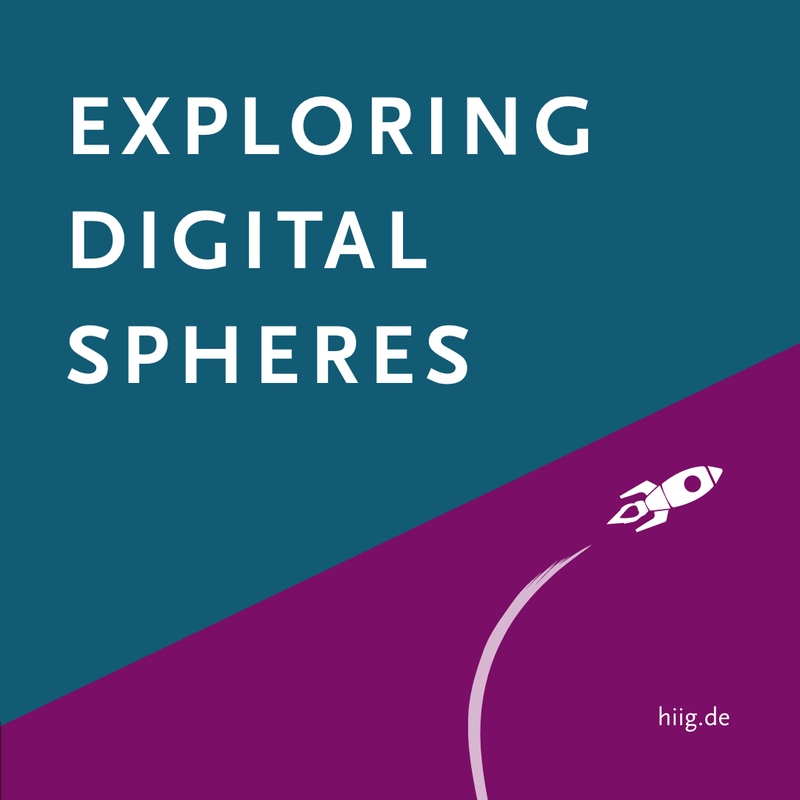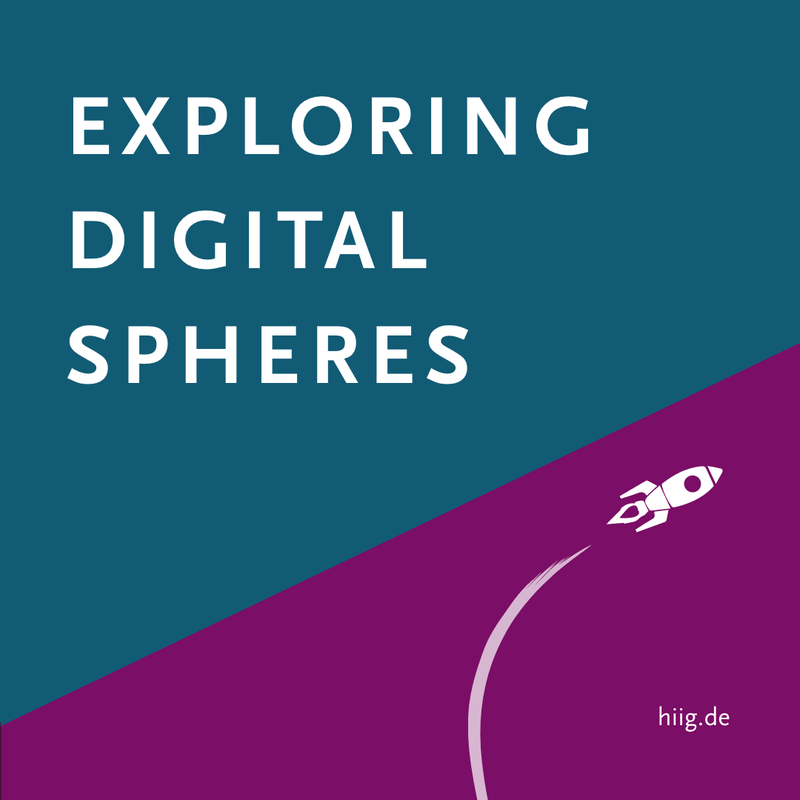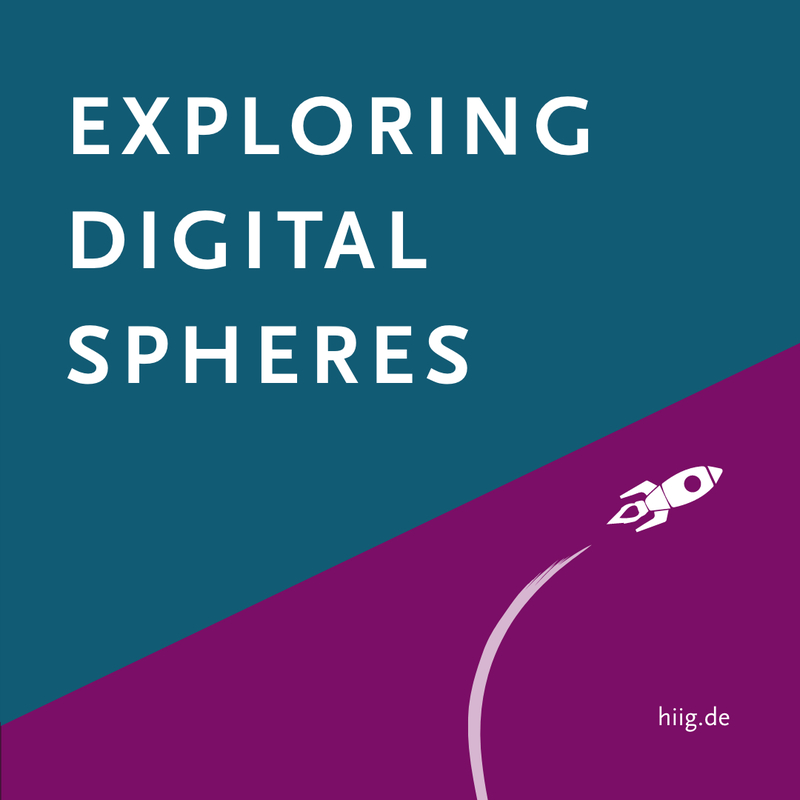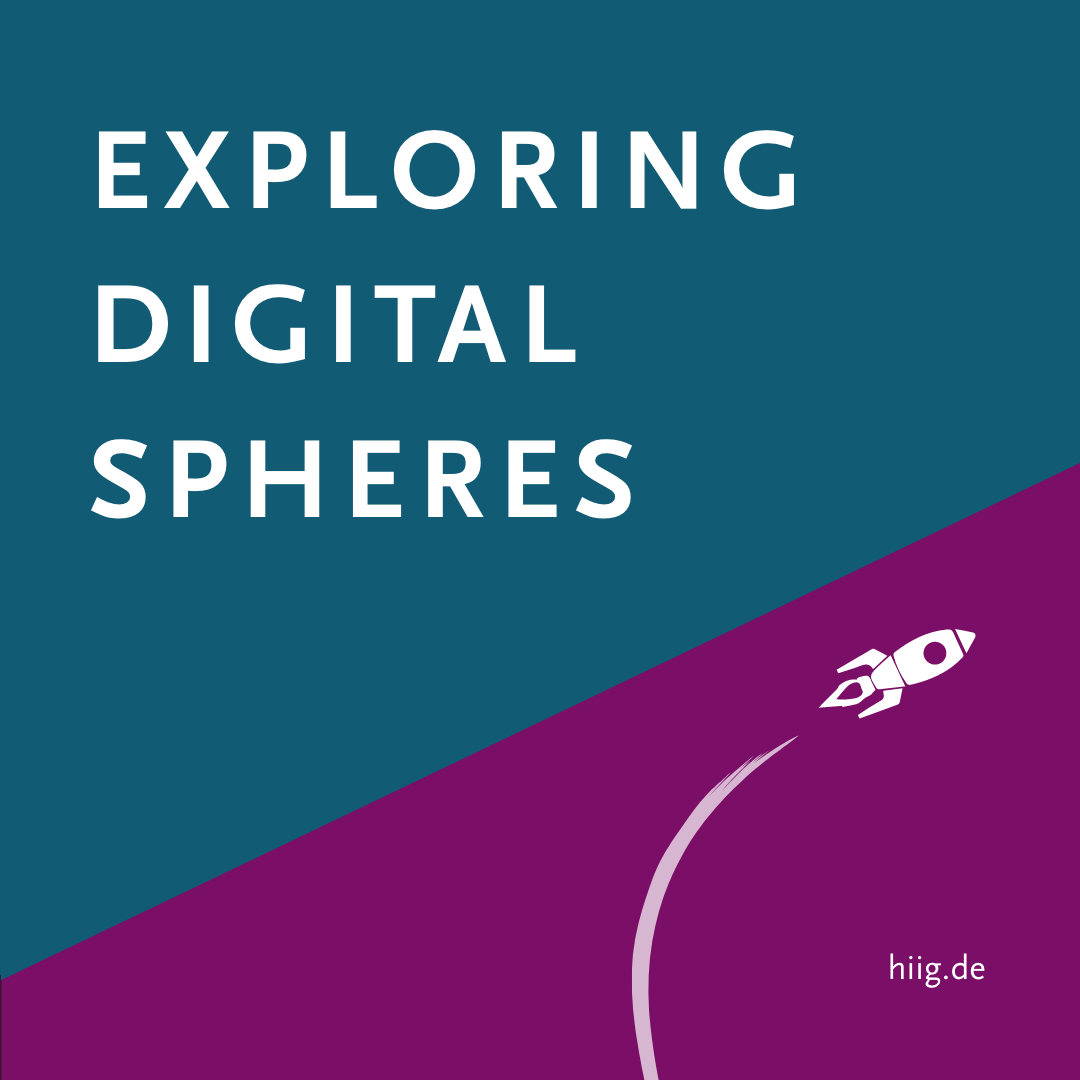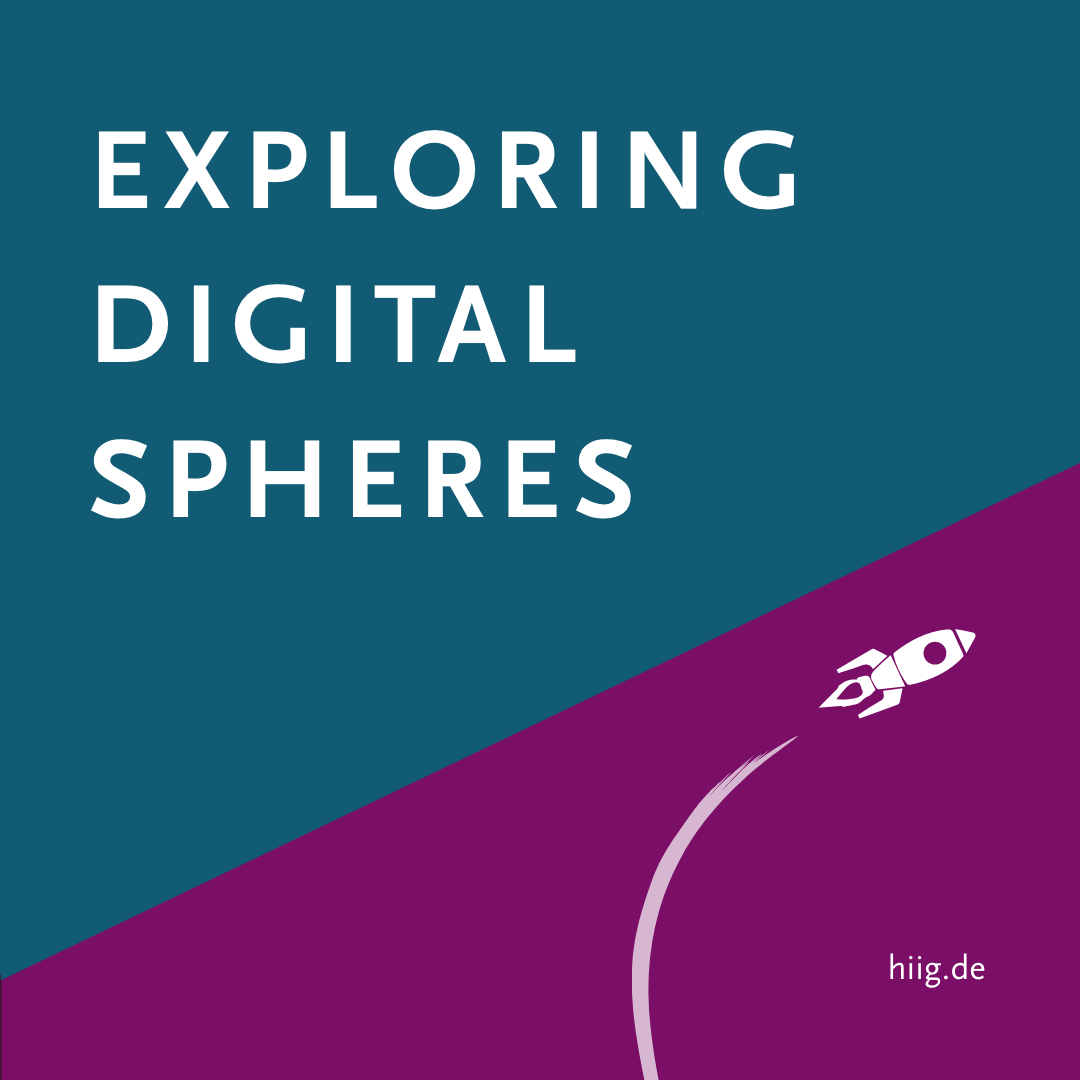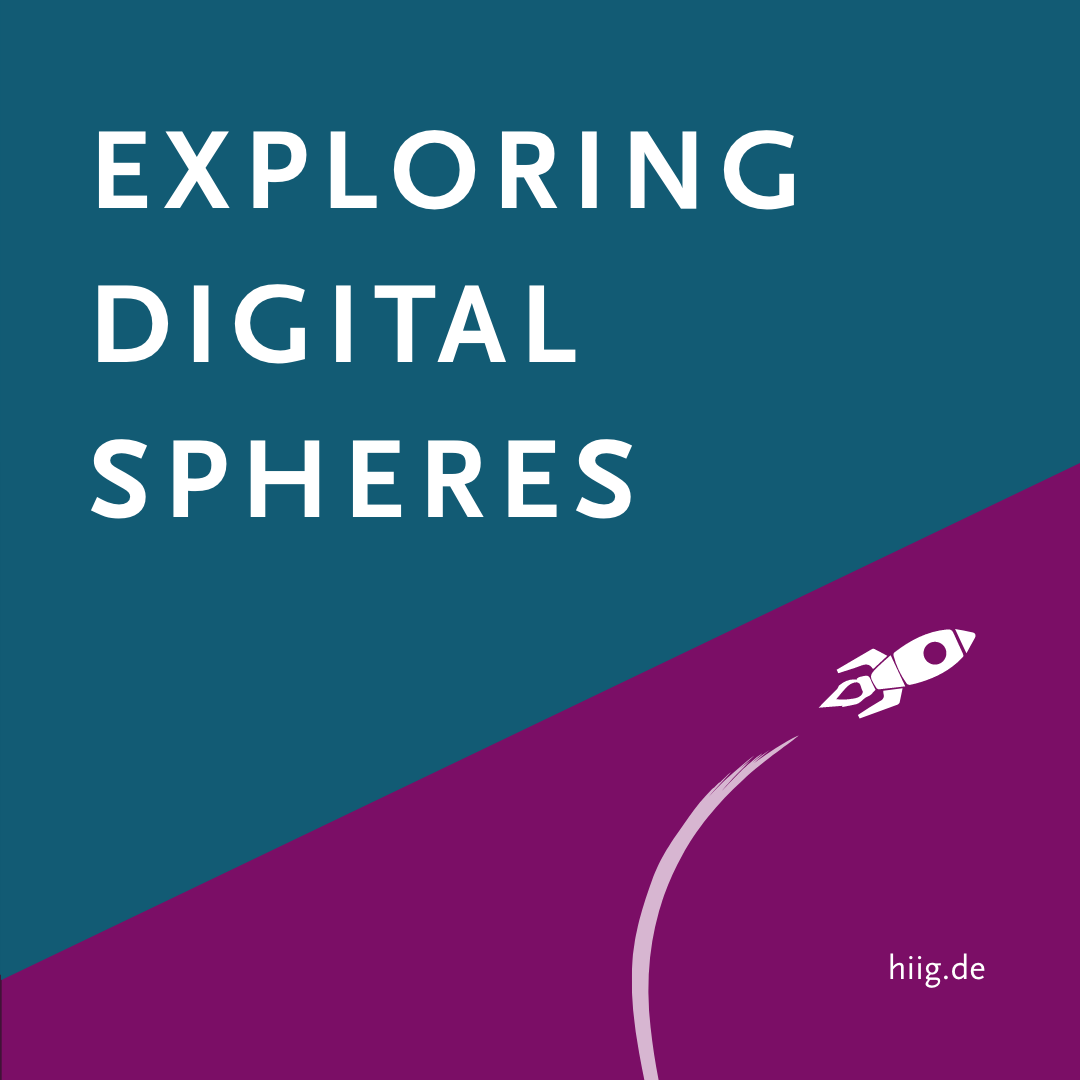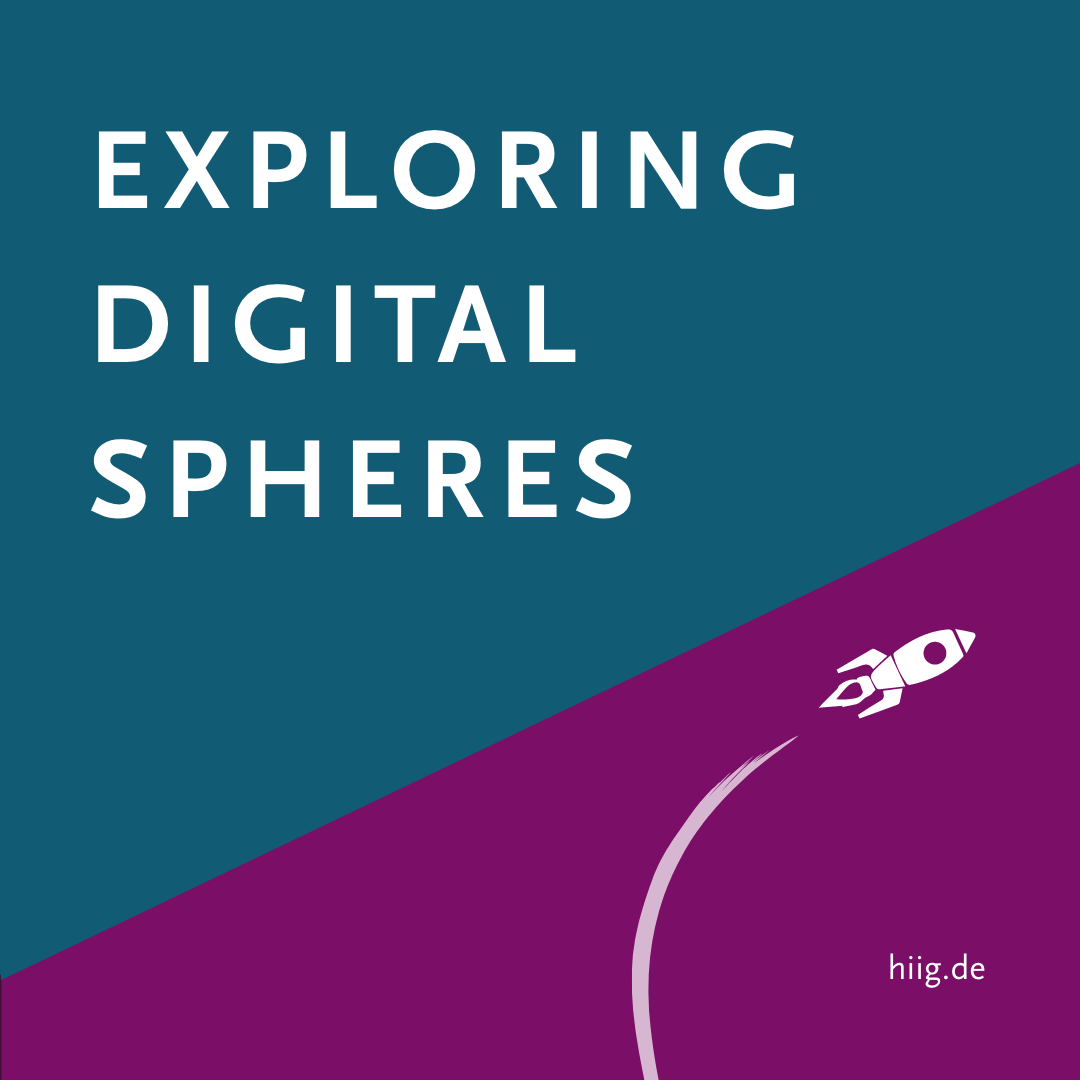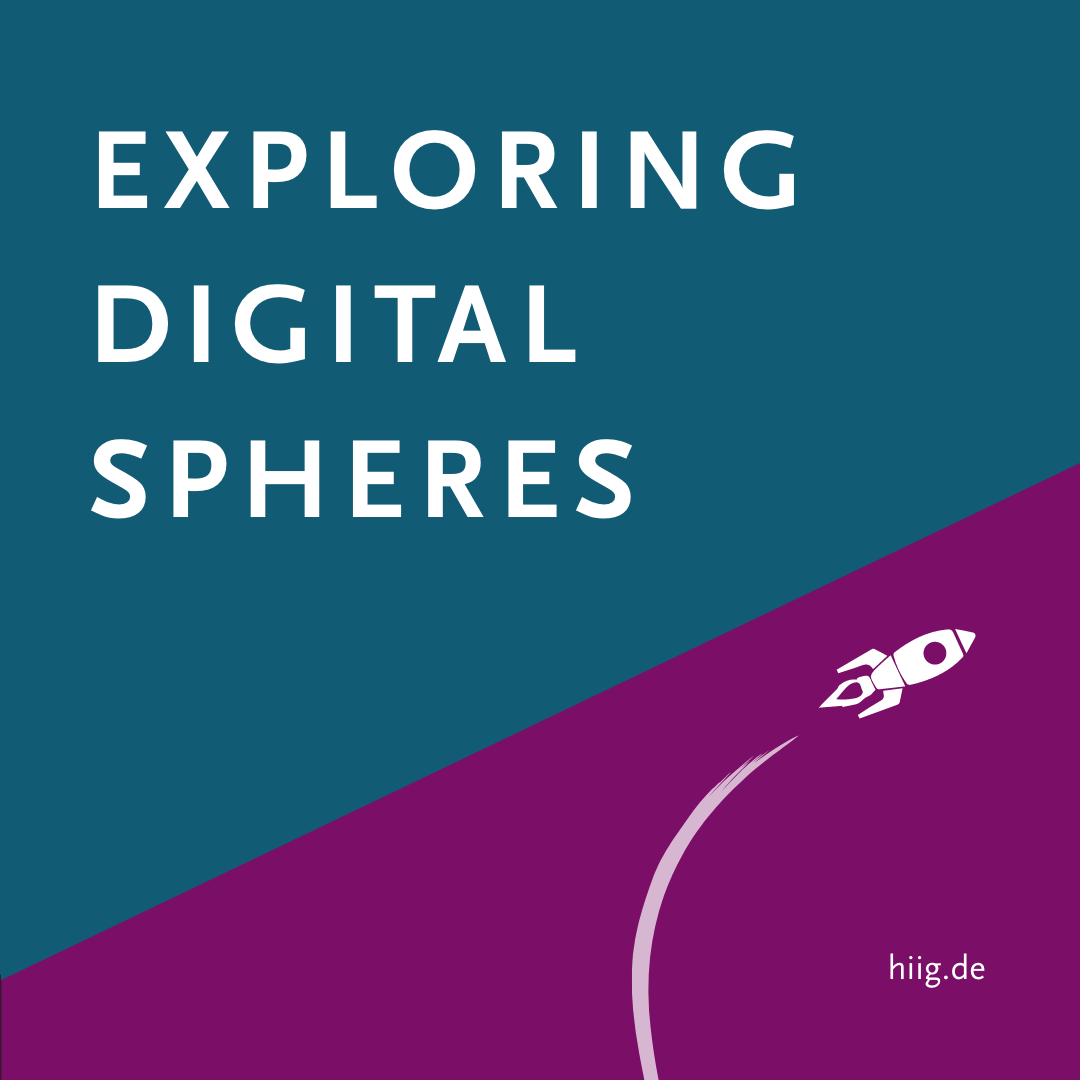Discover Exploring Digital Spheres
Exploring Digital Spheres

Exploring Digital Spheres
Author: Alexander von Humboldt Institute for Internet and Society (HIIG)
Subscribed: 28Played: 367Subscribe
Share
© This podcast is licensed under a Creative Commons Attribution-ShareAlike 3.0 Unported License (CC BY-SA 3.0)
Description
Join us on a journey into the realms of our digital society: In the new season of Exploring Digital Spheres our SET-project research team travels to five different countries on three continents in order to explore the intersection of sustainability and digitalisation and talk to local experts about their endeavours.
In the first season of the podcast you got to know HIIG researchers and their diverse research backgrounds. We asked them how our digital society works and what its future might look like. Every other episode, the researchers entered into a dialogue with other digital mavericks!
In the first season of the podcast you got to know HIIG researchers and their diverse research backgrounds. We asked them how our digital society works and what its future might look like. Every other episode, the researchers entered into a dialogue with other digital mavericks!
35 Episodes
Reverse
This episode of Exploring Digital Spheres takes us to Mauritania, a country in Northwest Africa, to explore the intersection of technology, gender, and migration. It features in-depth interviews with two remarkable refugee women, Fadimata Aicha Walet Mohamed Issa and Moueny Abdoulwahab, who are talking about their experiences as women in the tech industry in Mauritania.
In dieser Spezialfolge erkunden wir die Möglichkeiten von Open Educational Resources (OER) als neue Lehr- und Lernmethoden. In Zusammenarbeit mit der Bundeszentrale für politische Bildung (bpb) entwickelte das Alexander von Humboldt Institut (HIIG) eine Toolbox, um Schulen, Universitäten und Organisationen einen Ansatzpunkt zur Auseinandersetzung mit möglichen Zukünften zu geben. Diese Folge thematisiert, wie OERs speziell an Schulen einsetzbar sind und wie Lehrkräfte so mit ihren Schüler*innen (Zukunfts-)Denken trainieren können.
In the last episode of Season 2 we visit Mexico City to explore the potentials and challenges of sustainable digital entrepreneurship to mitigate climate change.
How can digital skills and technologies be trained and implemented in remote regions where the rainforest is of particular importance for local development?
Digital platforms are fundamentally changing the world of work. While the platform economy opens immense opportunities for flexible, gainful and convenient entrepreneurship, the precarious livelihoods of workers and service providers often remain unaddressed.
In this episode we shine a light on the transformation of a former military camp into the Innovation and Training Park (ITP) Prizren in Kosovo, an aspiring hub for innovation, economic development and digital transformation in the city and wider region. We discuss the connection between spatial development, innovation and digitalisation at the ITP with local experts.
At the SENIA, Benin’s first AI conference, our team had the opportunity to talk to local experts about the possibilities of digitalisation for the improvement of the agricultural sector and its working conditions.
Christian Grauvogel, Marie Blüml and Georg von Richthofen travelled to Benin in July 2022 to discuss the opportunities and risks of applying Artificial Intelligence in sustainable entrepreneurship in Benin and Francophone West and Central Africa. They had the opportunity to interview Seth Ayim, operational manager of the international NGO TechnoServe, and Theodore Gboyou, data scientist and regional manager of the digital platform Digital Rice Africa in Benin.
In a collaborative project researchers from Oxford and Berlin developed an index as the first economic indicator of industry-specific risk assessments related to Covid-19, based on financial disclosures of US companies. The index can provide valuable real-time information about economic risks associated with the pandemic, and it has already been featured in Oxford University News, the Washington Post, and the Wirtschaftswoche.
In today's special episode we welcome the data scientists Dr. Fabian Stephany and Dr. Fabian Braesemann from the University of Oxford. The two speak with HIIG Ph.D. student Bronwen Deacon about their recent work on the CoRisk-Index. We look forward to your feedback on the episode. Please feel free to provide comments and let us know whether you would like to hear more about Social Data Science research in the future.
How do you build Digital Momentum? How do you stay visible? As the music industry is changing, big music labels are reinventing their branding strategy. This podcast explores the resulting consequences in terms of power-relations and digital flows.
Lorenz Grünewald-Schukalla is a project manager in the project team Third Engagement Report, where he deals with questions of civic engagement in the digital world. Besides that he is researching the digital mediatization of music business and music culture. Therefore his Ph.D. project is about the changing relations of consumer brands and music from a media and communications perspective. He is managing director of the German Association for Music Business and Music Culture Research.
HIIG researcher Jessica Schmeiss is talking to Julia Hoxha about the collection and monitoring of medical data. Julia Hoxha is a former postdoctoral research scientist in Medical Informatics at Columbia University and co-founder and CEO of Zana, an AI-based health assistant. It is available via app, wearables and a platform, that can directly answer questions about health via voice input and enables continuous monitoring of medical factors for both patient and doctors. The episode is part of the "Demystifying AI in Entrepreneurship" project at HIIG.
Wolfgang Schulz studied law and mathematics and is now an expert on media law and algorithmic decision taking. He is the director of the Humboldt Institute for Internet and Society (HIIG) and the Hans-Bredow-Institute in Hamburg and also advises the European Council on intermediaries – such as social media platforms, search engines and micro blogging services – and human rights. In this episode, he explains the difficulties of regulating intermediaries that increasingly can be seen as hybrids between state and society.
HIIG researcher Jessica Schmeiss interviews Uli Erxleben (Hypatos) on how exactly the startup uses deep learning automation technology for document processing and how this frees up some of our time. The episode is part of the "Demystifying AI in Entrepreneurship" project at HIIG.
What do Edward Snowden, Aaron Swartz and Phil Zimmermann have in common? This episode is all about whistleblowers, activists and other people deliberately breaking the law for a specific ideological conviction. What are the parallels of todays' digital civil disobedience to for example the civil rights movement in the US, Ghandi, Rosa Parks or the anti-nuclear energy protests in Germany. Well, and what's new?
Theresa Züger, researcher at HIIG, talks with Wouter about her research insights into practices and characteristics of digital disobedience. Listen to her sharing stories of encryption, hacking and whistleblowing.
Suppose they gave war and nobody has to come. The idea of autonomous weapons is tempting for some and troubling for most, because it raises many ethical issues. Yet, what exactly do we mean when saying 'autonomous weapon systems' (AWS) – does it mean we're really taking the human out of the loop?
Thomas C. Bächle and Frank Sauer met at HIIG to talk about the question of how to regulate these systems, how China or the UK deal with this, what the future of weapons looks like, what the CCW does and much more.
Are universities the best option we have?
In this episode, Benedikt Fecher and Wouter talk about this question to discuss what research actually is and how we create knowledge in our society today. Science is not only about research and education, but more and more about trying to bridge the gap between scientific results and society. Also they speak about increasing science's actual impact on society and HIIG's recent project "twentyforty", an essay competition on the future of digital society in 2040.
In dieser Folge geht es um die großen Fragen unserer Zeit: die Komplexität in der modernen Gesellschaft, wie Facebook Facebook geworden ist und ob es überhaupt vorstellbare Alternativen zur Digitalisierung gibt.
Die digitale Technologie ist jung, aber das grundlegende Problem, dass sie zu lösen versucht, ist alt. Das ist die These, die Armin Nassehi in seinem Buch „Muster“ formuliert. HIIG-Direktorin Jeanette Hofmann diskutiert mit Nassehi, worin dieses Problem genau besteht und ob wir Digitalisierung eventuell auch anders verstehen können.
HIIG researcher Christian Katzenbach speaks about the responsibility of platforms and the content that they host, regulative mechanisms as well as the widely discussed EU directive on copyright better known for its proposed upload filter and Article 13. Also in the conversation with Wouter Bernhard, they discuss Zuckerberg's hearing in the US as well as the role of AI for content moderation.
By ranking the world’s most powerful internet, mobile, and telecommunications companies Ranking Digital Rights (RDR) works to promote freedom of expression and privacy on the internet.
Nathalie Maréchal, Senior Research Analyst at Ranking Digital Rights, talked with Frédéric Dubois about the wrong doings of internet and telecommunications companies such as Facebook, Apple or Deutsche Telekom. Learn about how RDR is rethinking how to hold companies accountable for human rights harms associated with targeted advertising, algorithms, and machine learning – maneuvering from looking only at individual rights to understanding the collective consequences of the companies' policies and practices.
The internet is currently built of more than 60.000 autonomous systems. Without connectivity among those, the internet simply doesn't exist. Associated HIIG researcher Uta Meier-Hahn looks in her research at the question, how network operators, such as Netflix, Youtube and Deutsche Telekom jointly provide internet connectivity. Since they constantly have to negotiate whether to cooperate or compete with each other, a very particular form of connectivity economics exists.
In this episode, Wouter goes on a journey into the very depth of the internet. Together with Uta Meier-Hahn, they explore the architecture of the internet and the objects traded among operators. Also learn about "the networkers", a closely-knit community of internet engineers around the globe who work for "the good of the net".


